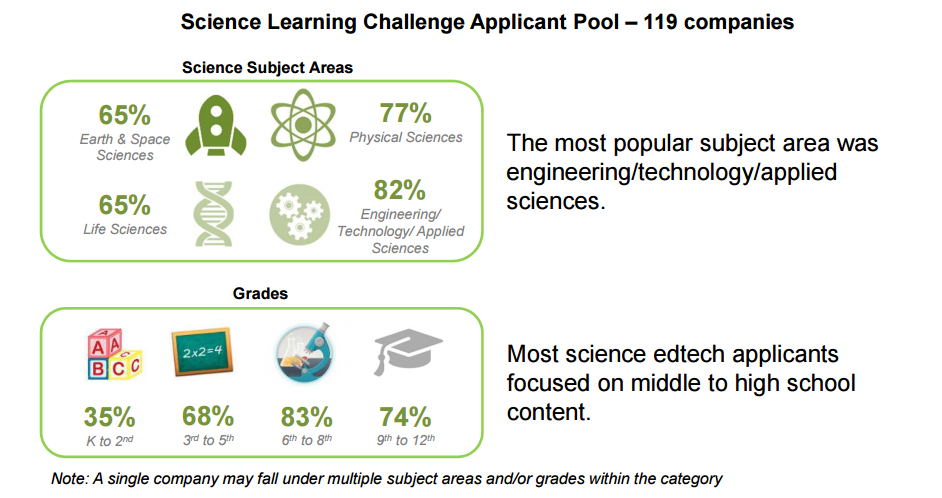Teachers Want Better Ed-Tech Science Tools. Will the Market Provide Them?
Teachers crave K-12 products that will help them teach science in engaging and in-depth ways. But the ed-tech market in that area is largely undeveloped and has miles go before it can meet educators’ needs.
So says a recent breakdown of the market by the NewSchools Venture Fund, an Oakland, Calif.-based philanthropy that invests in education. The report draws from market research, as well as the experiences of companies selected to receive support to create ed-tech science products as part of a competition run by a venture fund project called NewSchools Ignite.
The report, “Promising Developments in Ed-Tech for Science,” lays out an argument for the economic and societal benefits of improving students’ skills in science—and the consequences of failing to do so. Far too many jobs in science are going unfilled; for instance, not enough minority students are jumping into science, technology, engineering, and math, or “STEM” careers, the authors say. And there are indications that many students lose interest in science as they progress through the pipeline.
Meanwhile, many states are setting new, and by many accounts, tougher benchmarks for science learning, through their adoption of the Next Generation Science Standards.
Those standards are already shaping the work of publishers and other education companies, even in states that didn’t formally accept them, as we explained recently in a story in EdWeek Market Brief.
Yet despite all that activity, educators seem far from convinced that there are enough science products to help them meet their needs. Teachers pointed to K-12 science as one of the areas where digital resources are weakest, the report says, citing survey results from the Bill & Melinda Gates Foundation.
Educators’ demands for better science content vary across grade levels, the Gates survey found. In grades 3-5, they want science materials that promote student collaboration. In secondary grades, they need products that can help them diagnose student learning and customize lessons to student needs.
Other research on the K-12 science market offers a mixed picture of science’s status.
There are far fewer science companies in the market than there are math- and English/language arts-focused businesses, yet investment in science products has risen, says the report, citing EdSurge.
In an effort to explain market trends, the New Schools Venture Fund’s report also breaks down the companies that applied for grants through its science competition—there were 119 of them—to glean their ambitions in developing science products.
They found a big emphasis on developing digital resources in engineering/technology/applied sciences; as well as a focus on fashioning tools for secondary grades:

The report points out that science companies also face some of the same frustrations that other businesses in the K-12 market must try to conquer.
They have to deal with long K-12 sales cycles that make it hard for ed-tech providers, especially new ones, to gain traction. They also face rising demands for product integration, or interoperability, from districts.
Making up ground in science will require action on many fronts, the report says.
The authors urge investors to keep an eye out for high-quality products emerging from accelerator programs and other sources, and to nurture their growth. Educators can help by showing a willingness to test out new science products and offer feedback. And entrepreneurs need to commit to weaving feedback from teachers, and research on effectiveness, into their science-focused tech tools.
See also:

I have taught middle school sciences and now high school science, and there are lots of great technology for teachers to use. I think issue is that most of professional development and conversations focus on English/math .
What are some great technologies to use to teach science?
lots of kits are out there: check out Mud Watt Also robotics, coding, 3d printing